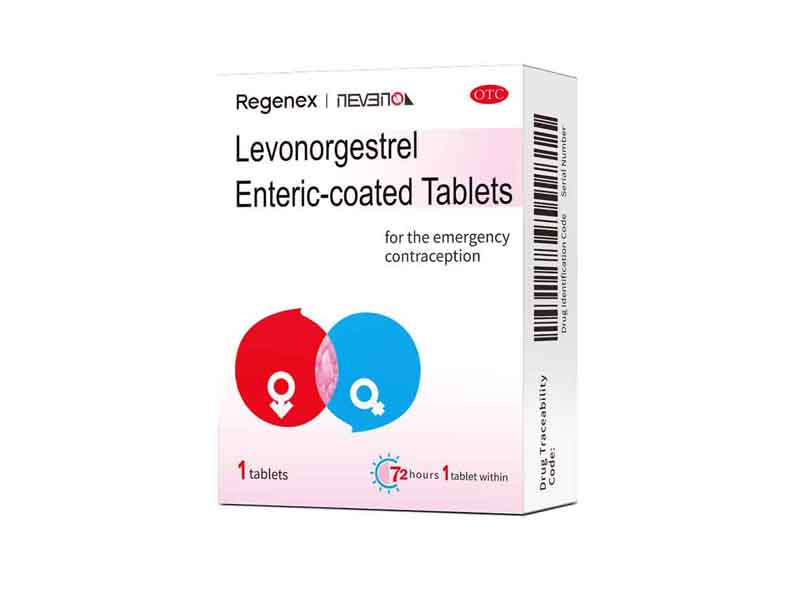
Levonorgestrel is used to prevent pregnancy after unprotected sexual intercourse (sex without any method of birth control or with a birth control method that failed or was not used properly [e.g., a condom that slipped or broke or birth control pills that were not taken as scheduled]). Levonorgestrel should not be used to prevent pregnancy on a regular basis. This medication is to be used as an emergency contraceptive or backup in case regular birth control fails or is used incorrectly. Levonorgestrel is in a class of medications called progestins. It works by preventing the release of an egg from the ovary.
Levonorgestrel may prevent pregnancy, but it will not prevent the spread of human immunodeficiency virus (HIV, the virus that causes acquired immunodeficiency syndrome [AIDS]) and other sexually transmitted diseases.
Here are 8 important points of levonorgestrel tablets
1.It should be taken as soon as possible, preferably within 24 hours of last sexual contact, but can work up to 5 days (120 hours) after sex.
2.Levonorgestrel temporarily stops the release of an egg from the ovary, prevents fertilization of the egg, and/or prevents a fertilized egg from implanting in the uterus.
3.Levonorgestrel may not work as well in individuals who weigh more than 75kg (165lbs) or have a Body Mass Index (BMI) greater than 25 kg/m2.
4.If this applies, other methods of emergency contraception should be considered.
5.Levonorgestrel is not prescribed if you are pregnant or suspect you may be pregnant, but if taken inadvertently while pregnant, it will not harm the person or the course of the pregnancy.
6.It is safe for individuals who are chest/breastfeeding.
7.Common side effects of levonorgestrel include nausea, abdominal pain, headache, and irregular menstrual bleeding.
8.If vomiting occurs within 2 hours of taking the pill, the dose may be ineffective and should be repeated.







